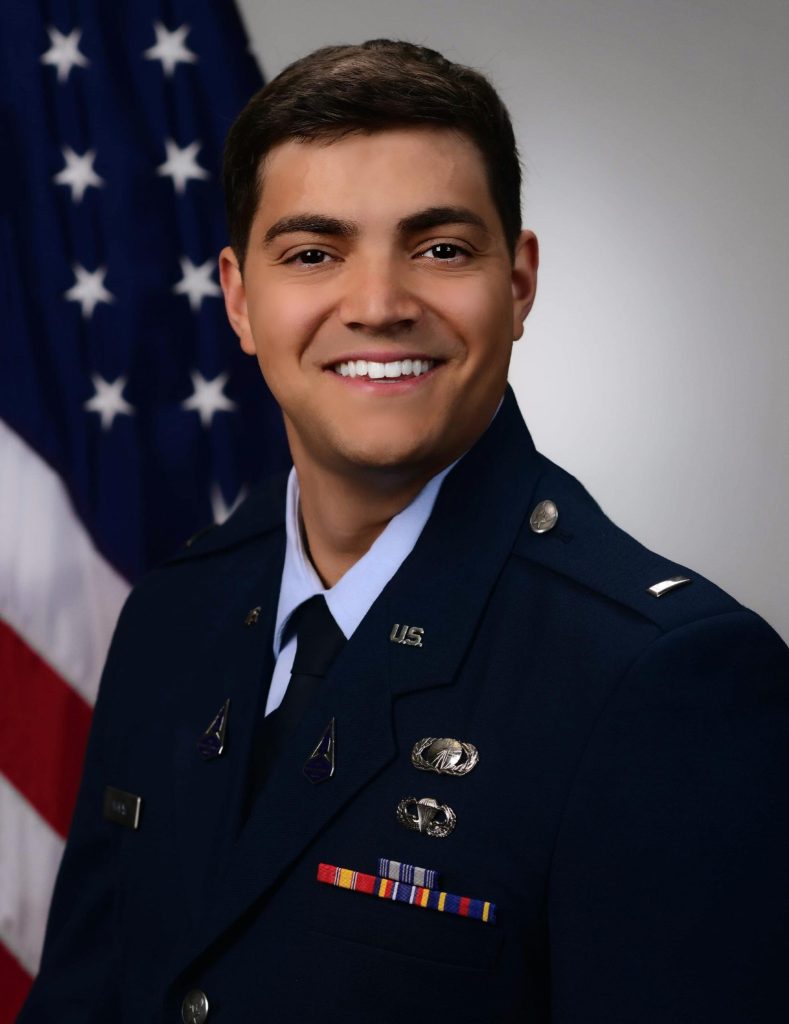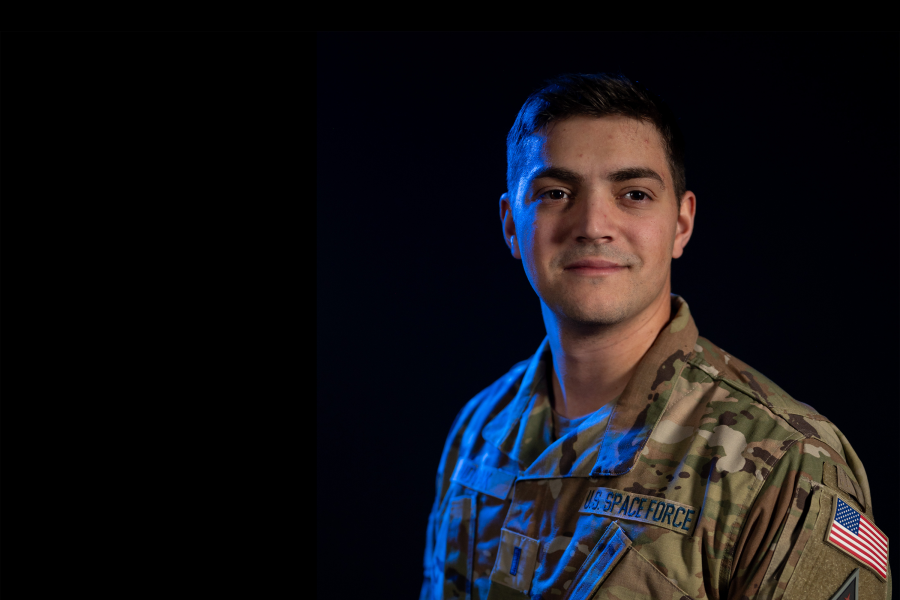The Space Force’s Polaris Awards annually recognize Guardians who best represent the Guardian Spirit. There are four individual award categories based on each of the core Guardian values—Character, Connection, Commitment and Courage—and a Team Excellence category that combines all four values. Air & Space Forces Magazine is highlighting each of this year’s winners before they receive their awards on stage at the 2024 AFA Warfare Symposium in Aurora, Colo.
The U.S. Space Force selected 1st Lt. Jonathan Novak of the 3rd Space Operations Squadron at Schriever Space Force Base, Colo., as the winner of the Polaris Award for Commitment for “displaying devotion to personal development and self-improvement, utilization of resources, and unique strengths and skills” in 2023.
As the squadron’s engineering officer in charge, Novak leads a team of 15 technicians, analysts, and engineers in technical management and error resolution for the Space Force’s Protect and Defend mission. But it’s his commitment to the Space Force outside of his work—in fact, since his final days at the U.S. Air Force Academy—that earned him a Polaris recognition.
In 2020, when Novak was two weeks away from graduating from USAFA with a slot for Air Force pilot training, he received an acceptance letter from MIT’s Technology & Policy graduate program. Lacking the funding and personnel slot from the Air Force to pursue this last-minute opportunity, Novak reached out to a mentor to see if the Space Force could support his continued education.
The response came just three days later as an email from his mentor: “John, see below comments from your future boss.” Below that was the forwarded message, “I will make that happen. JWR”—as in, Gen. John W. Raymond, Chief of Space Operations.
“I couldn’t believe it at first, but he called me a few days later,” Novak said. “I remember just standing at attention in my room because I didn’t know what to do—a four-star chief of a service was calling me. And he goes, ‘Lt. Novak, I just want to let you know you’re squared away. You’re going to be working with Lincoln Labs. You’re fully funded, you’re slated to go.’”
Two short weeks later, Novak commissioned as the 57th Guardian of the U.S. Space Force and packed his bags for MIT. He said that phone call was what incited his “commitment to mastery” and dedication to the Space Force.
“Since the Space Force was going to be my team moving forward, I wanted this team to be as great as possible,” he said. “And because they trusted me with this, I wanted them to know that they made the right choice.”

Novak spent 12 hours a day for the next two years writing a research thesis on resilient space architectures. He graduated from MIT in 2022. In January 2023, his thesis was published in Acta Astronautica, an international aerospace engineering journal.
Following its publication, Novak had the opportunity to distill his 200-plus-page paper into a presentation for 60 middle- and high-school STEM teachers. He said his presentation was more than just an opportunity for amplifying STEM education—it was an opportunity to educate teachers and students about the Space Force.
Building on his research, Novak identified an educational pipeline gap for 2,000 acquisition-coded personnel and spearheaded an effort to craft the Space Force’s first-ever space-centric acquisition training program. In April 2023, he brought his training concept to the inaugural Guardian Field Forum, a professional development forum where Guardians presented ideas to the Chief of Space Operations, the Chief Master Sergeant of the Space Force, and other senior leaders from Space Force Headquarters.
Novak secured $500,000 to develop his curriculum.
“I didn’t want to just bring this problem in front of the CSO, I wanted to bring it with the solution,” Novak said. “They heard my concerns with acquisitions, but I still wanted to see if I could steward this on my level … Everyone was willing to listen to me. That’s really what I think was special about this experience, is not only how many times the senior leaders were willing to listen to us, but also the fact that it was able to happen on the tactical level.”
Novak also mentored more than 110 cadets at USAFA and three ROTC detachments on officership, partnership, and career field opportunities. He said these engagement opportunities were a full-circle way to advocate for the Space Force the way it advocated for him in 2020.
“When you open up these opportunities and take care of people, they’ll return that favor, and they’ll take care of the mission,” Novak said. “And so I remember when [CSO] said, ‘I will make that happen.’ That short, five-word email, that’s when I was committed. That’s when I started reaching out to people and I started seeing the Space Force as my team.”
“They gave me the trust, and I just wanted to steward that trust as best as possible,” he added. “Their trust is what underpins that commitment.”
Meet the other 2023 Polaris Award winners below:
- Polaris Award for Character: Tech. Sgt. Isabel Childress
- Polaris Award for Connection: Lt. Col. Jessica Pratt
